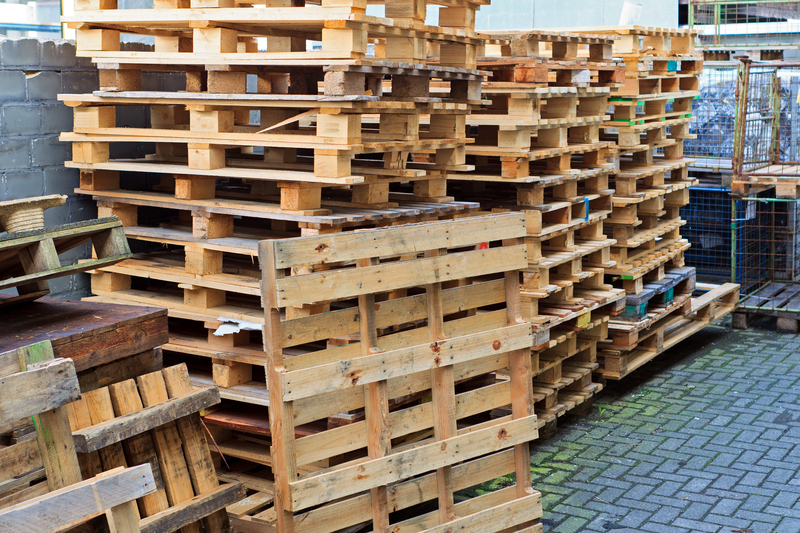How to Make Bulky Waste Item Removal Cheaper and Easier
Bulky waste--and the hassle of removing it--can be a significant challenge for households and businesses alike. From old sofas and mattresses to outdated appliances and construction debris, heavy and oversized items require special handling and usually come with hefty disposal fees. But with the right strategy, removing bulky items doesn't have to be stressful, time-consuming, or expensive. In this comprehensive guide, we'll explore cost-effective, practical tips to make bulky waste item removal not just easier, but also more affordable.
Understanding Bulky Waste: What Is It?
Bulky waste (also known as large item waste, bulky rubbish, or large junk) refers to items that are too big or heavy to be collected by regular household curbside collections. Examples include:
- Old furniture like sofas, armchairs, beds, and mattresses
- White goods such as refrigerators, freezers, stoves, and washing machines
- Large garden waste--branches, tree trunks, garden sheds
- Exercise equipment or bicycles
- Rugs, carpets, or large pieces of flooring
- Construction and renovation debris
These items often require special removal services or trips to the landfill, which increase costs and inconvenience. But with some planning and the right resources, you can save money and hassle.

Why Is Bulky Waste Removal So Expensive?
Bulky item disposal typically involves more than simply placing your junk at the curb. Costs can mount due to:
- Specialized transport and labor
- Landfill fees or disposal taxes
- Additional recycling or environmental costs
- Limited collection schedules
- Permit or booking requirements
Understanding these costs is the first step to finding ways to reduce bulky waste item removal expenses.
Top Tips to Make Bulky Waste Pickup Cheaper and Easier
1. Plan Ahead and Don't Wait Until the Last Minute
Procrastinating can be costly. Bulky waste clearance is often more affordable with advance planning. If you know you'll have large items to dispose of--such as after moving, renovating, or spring cleaning--mark your calendar and research options well in advance.
2. Take Advantage of Council Bulky Waste Collection Services
Many municipalities offer free or low-cost bulky waste collections for residents. These services may be limited to a few times per year or restrict the types and quantities of waste collected, but they're often the most affordable way to dispose of furniture and appliances.
- Contact your local council for eligibility and schedule details.
- Book early--slots fill up quickly, especially during peak seasons.
- Group your items for a single pickup to maximize the service.
3. Use Local Recycling and Donation Programs
Don't rush items straight to landfill. Many charities, recycling centers, and social enterprises will collect bulky items in good condition for free or a small fee. Consider:
- Furniture banks seeking beds, tables, chairs, and usable mattresses
- Nonprofits needing working electrical appliances
- Recycling depots for scrap metal, electronic waste, and white goods
Sometimes, they even offer free removal of bulky waste items if you schedule pickup at a convenient time.
4. Repurpose, Upcycle, or Sell Before Choosing Disposal
Before paying for disposal, ask: "Could someone else use this?" Selling online through marketplaces or offering items for free pickup can quickly rid you of bulky waste. Alternatively, upcycling old furniture--or giving it away through local community groups (like Freecycle or Nextdoor)--keeps items out of landfill and reduces your costs.
5. Share Removal Costs With Neighbors or Friends
When hiring a bulky item removal company, share the expense by organizing a group pickup day with neighbors or friends. Service providers often give discounts for larger, consolidated loads, reducing everyone's cost per item.
6. Disassemble Large Items to Make Heartier Waste Cheaper to Remove
If possible, break down bulky items--such as furniture or shelving--into smaller components. Disassembled pieces are easier and cheaper to transport, may qualify for curbside pickup, and can sometimes be recycled as raw materials.
7. Compare Bulky Waste Removal Prices and Negotiate
Shop around. Compare quotes from several junk removal companies or man-and-van services. Prices can vary significantly, especially if you're flexible on pickup time. Don't be afraid to negotiate--many companies will match lower quotes or offer discounts for off-peak days.
DIY Bulky Waste Disposal: Is It Worth It?
If you have access to a vehicle and some helping hands, do-it-yourself bulky waste removal can save you money. Most city or county landfills accept large household items--though you may pay by weight or by item.
Tips for Successful DIY Disposal:
- Check landfill hours, fees, and accepted items in advance.
- Use proper lifting techniques and safety equipment.
- Secure your load--improperly loaded waste can attract fines.
- Sort items for recycling wherever possible to reduce environmental impact.
- Borrow or rent a trailer or van if needed.
Hiring a Professional Bulky Waste Removal Service
When the DIY approach isn't possible--or when dealing with hazardous or especially heavy items--a professional rubbish removal company may be the best solution. Here's how to make this option cheaper and easier:
- Ask about minimum charge and whether price is based on volume, weight, or type of item.
- Book during off-peak times or late afternoons for possible discounts.
- Prepare items in one easily accessible location.
- Combine with other households for bulk discounts.
- Verify if the company recycles as much as possible to reduce landfill fees.
What to Look For in a Reliable Bulky Waste Removal Provider:
- Proper licensing and insurance
- Clear, upfront pricing--no hidden surcharges
- Positive customer reviews or professional accreditations
- Commitment to recycling and environmentally safe disposal
- Fast, flexible scheduling
Eco-Friendly Bulky Waste Solutions
Eco-conscious disposal isn't just better for the environment--it can often be cheaper too. Consider these tips:
- Participate in special recycling drives for electronics, white goods, or heavy plastics
- Contact manufacturers about take-back programs for old mattresses, appliances, or electronics
- Work with green removal services that sort, donate, or responsibly recycle as part of their service
- Compost organic bulky waste (like branches or timber) if possible
By recycling, upcycling, or donating, you not only cut costs but also reduce your ecological footprint.
Bulky Waste Removal Cost-Saving Checklist
- Assess items first: Can anything be reused, donated, or sold?
- Check all free disposal options: Council collections, charity pick-up, recycling events
- Organize and disassemble: Group items and break them down for efficiency
- Compare and negotiate: Get multiple quotes and ask for discounts
- Consider DIY: If practical, bring your own bulky waste to the landfill
- Partner with neighbors: Split costs on shared removal services
Common Mistakes to Avoid When Disposing of Bulky Items
- Waiting until items must be removed immediately--paying premium for "rush" collection
- Ignoring available free or low-cost disposal schemes
- Failing to separate recyclable materials, triggering higher landfill fees
- Leaving items in unauthorized areas, risking fines for illegal dumping
- Not reading the fine print about extra charges (stairs, distance, hazardous materials)

FAQs about Bulky Waste Item Removal
Q: How do I know if my waste is classified as bulky?A: Bulky waste generally refers to items too large or heavy for standard wheelie bins or regular curbside collection, such as furniture, mattresses, and appliances. Q: Can I leave large items on the curb?
A: Only if your council or service provider has a scheduled bulky item pickup. Unauthorized dumping can incur fines. Q: Is it free to dispose of bulky waste?
A: Some council collections and charity pickups are free, but commercial services and landfill visits often have fees. Q: How do I avoid large waste removal scams?
A: Always use licensed waste carriers, get quotes in writing, and check online reviews.
Conclusion: Smarter, Cheaper Bulky Waste Item Removal Is Possible
Getting rid of unwanted large items doesn't have to cost a fortune or damage the environment. By combining resourceful planning, making use of free and low-cost community services, and choosing ethical providers, you can make bulky waste removal cheaper and easier than ever before.
Remember to assess your options, plan ahead, and always look for ways to reduce, reuse, and recycle. Smart disposal doesn't just save you money--it helps build a cleaner, greener future for everyone.
For more expert tips on waste management, recycling, and home organization, follow our blog and subscribe for the latest updates!